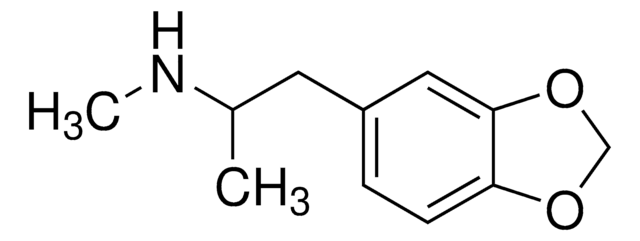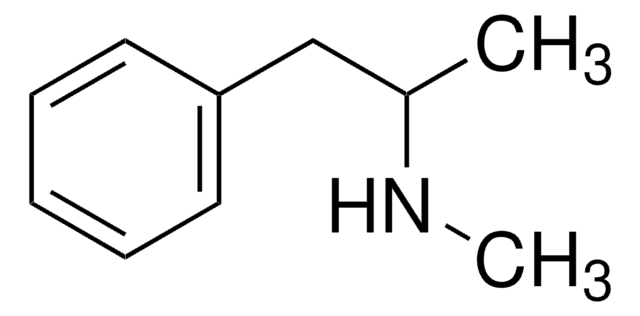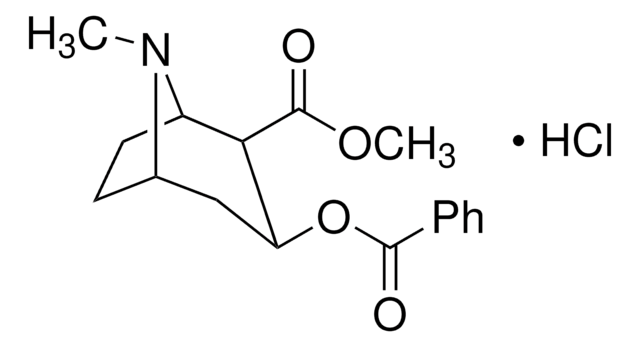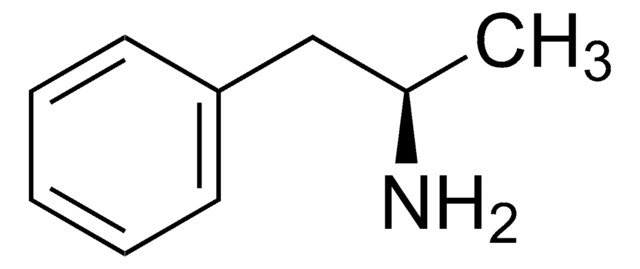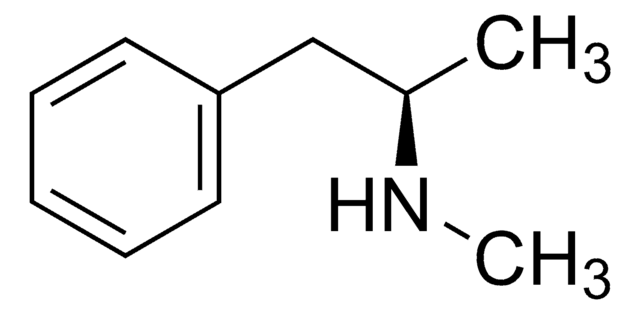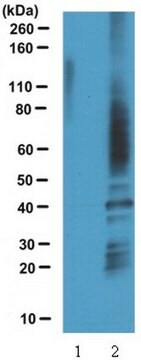AB5338P
Anti-Cocaine and Amphetamine Related Transcript Antibody
Chemicon®, from rabbit
Synonim(y):
CART/CARP
About This Item
Polecane produkty
pochodzenie biologiczne
rabbit
Poziom jakości
forma przeciwciała
affinity purified immunoglobulin
rodzaj przeciwciała
primary antibodies
klon
polyclonal
oczyszczone przez
affinity chromatography
reaktywność gatunkowa
mouse, rat
producent / nazwa handlowa
Chemicon®
metody
ELISA: suitable
immunohistochemistry: suitable
western blot: suitable
numer dostępu NCBI
numer dostępu UniProt
Warunki transportu
dry ice
docelowa modyfikacja potranslacyjna
unmodified
informacje o genach
mouse ... Cartpt(27220)
rat ... Cartpt(29131)
Specyficzność
Immunogen
Zastosowanie
Neuroscience
CNS Control of Metabolism
Reward & Addiction
Immunohistochemistry: 5-10 μg/mL It has been reported that the antibody will recognize CART in neurons (cell bodies) from the rat hypothalamic arcuate nucleus.
ELISA: 1:10,000-1:50,000 using 50-100 ng control peptide (Catalog Number AG228) per well.
Optimal working dilutions must be determined by the end user.
Postać fizyczna
Przechowywanie i stabilność
Inne uwagi
Informacje prawne
Oświadczenie o zrzeczeniu się odpowiedzialności
Nie możesz znaleźć właściwego produktu?
Wypróbuj nasz Narzędzie selektora produktów.
Kod klasy składowania
12 - Non Combustible Liquids
Klasa zagrożenia wodnego (WGK)
WGK 2
Temperatura zapłonu (°F)
Not applicable
Temperatura zapłonu (°C)
Not applicable
Certyfikaty analizy (CoA)
Poszukaj Certyfikaty analizy (CoA), wpisując numer partii/serii produktów. Numery serii i partii można znaleźć na etykiecie produktu po słowach „seria” lub „partia”.
Masz już ten produkt?
Dokumenty związane z niedawno zakupionymi produktami zostały zamieszczone w Bibliotece dokumentów.
Nasz zespół naukowców ma doświadczenie we wszystkich obszarach badań, w tym w naukach przyrodniczych, materiałoznawstwie, syntezie chemicznej, chromatografii, analityce i wielu innych dziedzinach.
Skontaktuj się z zespołem ds. pomocy technicznej
